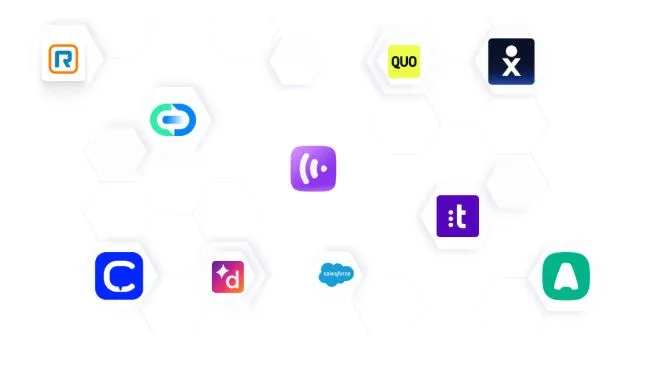From FIFA to EA Sports FC: The Evolution of Football Game Hacks
Introduction to the Legacy of Football Gaming
The world of virtual football has captivated gamers for decades, starting with the humble beginnings of the FIFA series and evolving into the powerhouse that is EA Sports FC. What began as a pixelated pitch in the early 1990s has transformed into a hyper-realistic simulation, complete with motion-captured animations and global online leagues. Yet, alongside this progression, a parallel story unfolds: the rise and persistence of hacks and cheats. These tools, born from players’ desires to bend the rules or accelerate progress, have mirrored the games’ own advancements. This history-style article traces the journey from FIFA’s inception to EA Sports FC 26, examining how hacks have adapted and why they continue to hold relevance in today’s competitive landscape.
The Early Days: FIFA’s Birth and Primitive Cheats (1993-2000)
Pioneering the Genre with Basic Exploits
The FIFA franchise kicked off in 1993 with FIFA International Soccer, a groundbreaking title for its time on platforms like the Sega Mega Drive and SNES. Gameplay was straightforward: isometric views, basic controls, and no online features. Hacks back then were rudimentary, often involving hardware modifications like Game Genie codes for infinite stamina or unbeatable teams. These cheats stemmed from arcade-style gaming culture, where players sought god-mode invincibility to rack up scores against AI opponents.
As the series progressed through the 90s—titles like FIFA 96 introducing 3D graphics and real player names—cheats evolved slightly. Console glitches, such as exploiting corner kick mechanics for easy goals, became community secrets shared via magazines like GamePro. The motivation? Pure fun in single-player modes, with no economies or multiplayer stakes to disrupt.
Community-Driven Innovations
By the late 90s, PC versions allowed for file editing. Modders tweaked .ini files to boost player stats or unlock hidden teams. This era laid the groundwork for a hacking culture, fueled by forums like GameFAQs. Hacks weren’t seen as malicious; they were extensions of creativity, helping casual players enjoy the game without grinding through career modes.
The Online Era: FIFA’s Expansion and Sophisticated Hacks (2001-2010)
Introduction of Multiplayer and Economic Systems
The turn of the millennium brought seismic shifts. FIFA 2001 introduced online play on PC, escalating the need for fairness. With FIFA 07 and beyond, modes like Ultimate Team (debuting in FIFA 09 as a DLC) added card-collecting and microtransactions, creating in-game economies ripe for exploitation.
Hacks adapted accordingly. Coin glitches emerged, where players duplicated items via save file manipulations or lag switches in online matches. Tools like trainers for PC versions allowed infinite funds, bypassing the grind of earning through matches. Why the surge? Ultimate Team’s addictive loop—building squads via packs—demanded time or money, pushing frustrated players toward shortcuts.
Anti-Cheat Measures and Cat-and-Mouse Games
EA responded with patches and bans, but hackers stayed ahead. Communities on sites like MPGH (MultiPlayer Game Hacking) shared scripts for aimbots in shooting mechanics or speed hacks. The relevance? As FIFA went global, with esports tournaments emerging, hacks leveled the playing field for non-pros against pay-to-win elements.
The Modern FIFA Boom: Refinements and Advanced Hacks (2011-2023)
Ultimate Team Dominance and Meta Shifts
From FIFA 12 onward, Ultimate Team became the focal point, with features like Chemistry styles and dynamic player ratings. Graphics leaped with Frostbite engine in FIFA 17, and cross-platform play arrived later. Hacks grew more digital: bots automated trading on the web app, sniping players at low prices for profit.
The 2020s saw FIFA 21 and 22 integrate VOLTA mode and deeper tactics, but the grind intensified with SBCs and objectives. Hacks included pack openers simulating RNG or mule accounts for coin transfers. Relevance persisted due to FOMO—limited-time promos like FUT Birthday created urgency, making legitimate progression feel sluggish.
Regulatory Pushback and Ethical Debates
EA’s Fair Play initiatives ramped up, using machine learning to detect anomalies. Yet, hacks thrived underground, with services offering undetectable methods. The split from FIFA branding after FIFA 23 marked a new chapter, but the core issues remained: time constraints in a fast-paced world drove players to seek efficiency.
The Rebranding: EA Sports FC Era and Contemporary Hacks (2024 Onward)
Seamless Transition with Enhanced Features
EA Sports FC 24 rebranded the series without missing a beat, retaining Ultimate Team and introducing HyperMotionV for lifelike movements. FC 25 built on this with tactical overhauls and expanded women’s leagues. Now, in 2025, FC 26 pushes boundaries with AI-driven career modes and seamless cross-play.
Hacks have evolved into sophisticated software, focusing on automation rather than blatant cheats. Coin generators, objective farmers, and market analyzers help navigate the volatile transfer market. Why do they remain relevant? The grind hasn’t eased—millions of coins for top squads, weekly objectives, and competitive modes demand dedication many can’t afford.
Balancing Act in a Monetized Ecosystem
Today’s players face a paywall dilemma: FC Points accelerate progress, but not everyone wants to spend. Hacks bridge this gap, offering ways to enjoy endgame content sooner. In esports, where skill matters, subtle enhancements ensure fairer matches against meta abusers.
Why Hacks Endure: Relevance in Today’s Gaming Landscape
Time Efficiency for Modern Lifestyles
In an era of busy schedules, hacks reclaim leisure time. Grinding 100+ hours for a dream team clashes with real-life commitments, making tools essential for casual enjoyment.
Countering Game Design Flaws
FC’s economy favors spenders, creating inequality. Hacks democratize access, allowing budget players to compete. Community feedback highlights burnout from repetitive tasks, where hacks inject variety.
Technological Advancements and Safety
Modern hacks prioritize undetectability, using VPNs and gradual implementations. Resources like Cheatservice FC 26 hacks provide updated, safe options, blending branded reliability with natural integration into gameplay.
Ethical Considerations and Future Outlook
The Gray Area of Fair Play
Hacks spark debates: do they ruin integrity or expose monetization issues? EA’s ongoing anti-cheat efforts suggest a perpetual evolution, but player ingenuity persists.
What Lies Ahead for FC and Hacks
As FC incorporates VR or AI companions, hacks will adapt—perhaps AI-assisted strategies. The key? Balancing innovation with accessibility, ensuring the series remains inclusive.
In tracing from FIFA’s origins to EA Sports FC 26, it’s clear hacks are more than shortcuts; they’re a response to evolving demands. They keep the beautiful game accessible, evolving alongside it to maintain relevance in a competitive world.





